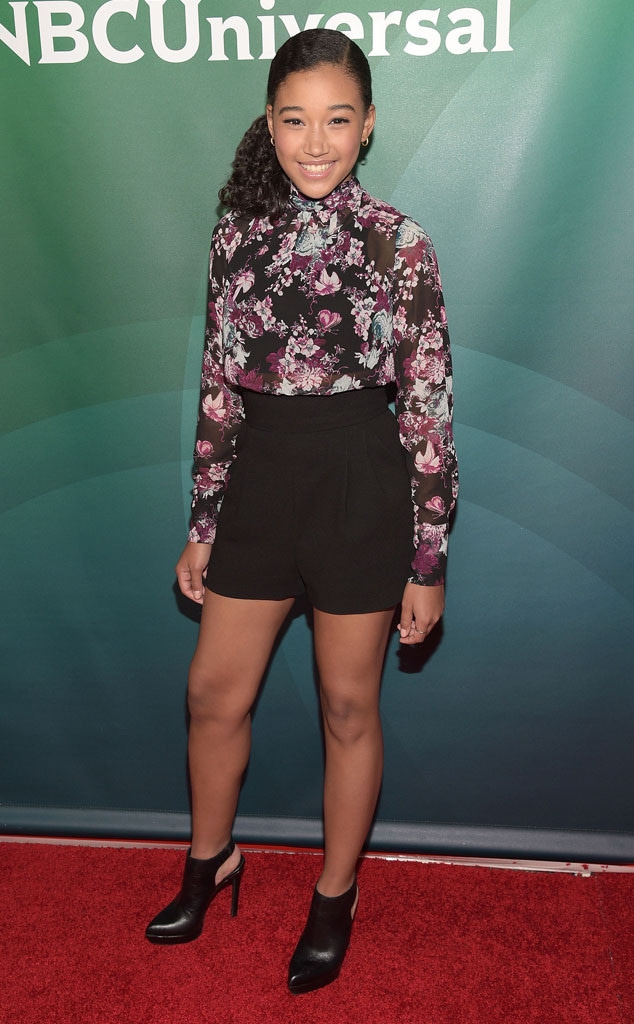 Jason Kempin/Getty Images
Jason Kempin/Getty ImagesKylie Jenner's cornrows sparked a heated, racially charged debate over the weekend. Hunger Games star Amandla Stenberg was reportedly among those critics who felt the Keeping Up With the Kardashians star was wrongfully appropriating black culture with her hairstyle.
On Saturday, a screenshot purportedly showed comments Amandla, 16, made on Instagram in which she appeared to shame Kylie, 17, for "appropriat(ing) black features and culture but fail(ing) to use ur position of power to help black Americans by directing attention towards ur wigs instead of police brutality or racism."
Kylie, who frequently changes up her hair style and color and recently sported blue extensions from her on line, appeared to respond to Amandla, writing, "Mad if I do…mad if I don't. Go hang w Jaden [Smith, a mutual friend] or something."
Neither star's rep issued an immediate comment on the apparent social media exchange, which led to some uncertainty on whether Amandla really took issue with Kylie's corn rows. On Sunday, however, Amandla made her POV on the topic quite clear with a length post on Instagram.
Amandla, who did not mention Kylie by name, wrote: "Black features are beautiful. Black women are not. Whit women are paragons of virtue and desire . Black women are objects of fetishism and brutality…This, at least, seems to be the mentality surrounding black femininity and beauty in a society built upon eurocentric beauty standards. While white women are praised for altering their bodies, plumping their limps and tanning their skin, black women are shammed although the same features exist on them naturally."
She went on to address "this double standard [which] is one string in the netting that surrounds black female sexuality—a web that entraps black women when they claim sexual agency. Deeply ingrained into culture is the notion that black female bodies, at the intersect of oppression, are less than human and therefore unattractive…Often when they are sexualized it is from a place of racial fetishism."
"When the media is not ignoring black women altogether, they are disparaging," wrote Amandla. "As culture shifts and racial tensions are tested through the vehicle of the #BlackLivesMatter movement, it is important to question: Do female black lives matter too?"
The actress pointed out the issue is "bigger than you or me," writing, "discussions are healthy. ignorance is not."